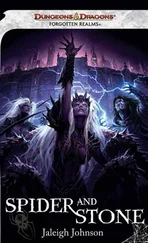“I wish I were as good as you, Miss Seldom,” he said. “I fear the power of evil in me goes beyond anything you could possibly conceive.”
“There are few things I cannot conceive, Mr. Clavering,” the girl answered, with that helpless droop of her little head that had so winning a pathos. “We people who live such secluded lives are not as ignorant of the great storms as you may imagine.”
Clavering’s voice shook as he responded to this.
“I wish I could talk quite freely to you. This convention that forbids friends such as we are from being frank with one another, seems to me sometimes an invention of the devil.”
The girl lifted her head. He could not see in the darkness that had now fallen upon them, how her mouth quivered and her cheeks grew scarlet.
“I think I can guess at what is worrying you, my friend,” she murmured gently.
He trembled from head to foot with a curious shame. “You think it is about Gladys Romer,” he burst out. “Well it is! I find her one of the greatest difficulties I have ever had in my life.”
“I am afraid,” said Vennie timidly, “she intends to be a difficulty to you. It is wrong to say so, but I have always been suspicious of her motives in this desire to enter our church,”
“God knows what her motives are!” sighed the priest, “I only know she makes it as hard for me as she can.”
As soon as he had uttered these words a queer observing sense of having been treacherous to Gladys rose in his heart. Once more he had to suppress an emotion of hatred for the little saint by his side.
“I know,” murmured Vennie, “I know. She tries to play upon your good-nature. She tries to make you over-fond of her. I suppose”—she paused for a moment—“I suppose she is like that. It is not her fault. It is her — her character. She has a mad craving for admiration and is ready to play it off on anybody.”
“It makes it very difficult to help her,” said the priest evasively.
Vennie peered anxiously at his face. “It is not as though she really was fond of you ” she boldly added. “I doubt whether she is fond of anyone. She loves troubling people’s minds and making them unhappy.”
“Don’t mistake me, Miss Seldom,” cried Clavering. “I am not in the least sentimental about her — it is only — only”—Vennie smoothed his path for him.
“It is only that she makes it impossible for you to teach her,” she hazarded, following his lead. “I know something of that difficulty myself. These wayward pleasure-loving people make it very hard for us all sometimes.”
Mr. Clavering shook his stick defiantly into the darkness, whether as a movement directed against the powers of evil or against the powers of good, he would himself have found it hard to say. Queer thoughts of a humorous frivolity passed through his mind. Something in the girl’s grave tone had an irritating effect upon him. It is always a little annoying, even to the best of men, to feel themselves being guided and directed by women, unless they are in love with them. Clavering was certainly not in love with Vennie; and though in his emotional agitation he had gone so far in confiding in her, he was by no means unconscious of something incongruous and even ridiculous in the situation. This queer new frivolity in him, which now peered forth from some twisted corner of his nature, like a rat out of a hole, found this whole interview intolerably absurd. He suddenly experienced the sensation of being led along at Vennie’s side like a convicted school-boy. He found himself rebelling against all women in his heart, both good and bad, and recalling, humorously and sadly, the old sweet scandalous attitude of contempt for the whole sex, of his irresponsible Cambridge days. Perhaps, dimly and unconsciously, he was reacting now, after all this interval, to the subtle influence of Mr. Taxater. He knew perfectly well that the very idea of a man — not to speak of a priest — confiding his amorous weaknesses to a woman, would have excited that epicurean sage to voluble fury. Everything that was mediæval and monkish in him rose up too, in support of this interior outburst of Rabelaisean spleen.
It would be interesting to know if Vennie had any inkling, as she walked in the darkness by his side, of this new and unexpected veering of his mood. Certainly she refrained from pressing him for any further confessions. Perhaps with the genuine clairvoyance of a saint she was conscious of her danger. At any rate she began speaking to him of herself, of her difficulties with her mother and her mother’s friends, of her desire to be of more use to Lacrima Traffio, and of the obstacles in the way of that.
Conversing with friendly familiarity on these less poignant topics they arrived at last at the gates of the Priory farm and the entrance to the church. Mr. Clavering was proceeding to escort her home, when she suddenly stopped in the road, and said in a quick hurried whisper, “I should dearly love to walk once round the churchyard before I go back.”
The cheerful light from the windows of the Goat and Boy showed, as it shone upon his face, his surprise as well as his disinclination. The truth is, that by a subtle reversion of logic he had now reached the idea that it was at once absurd and unkind to send that letter to Gladys. He was trembling to tear it in pieces, and burn the pieces in his kitchen-fire! Vennie however, did not look at his face. She looked at the solemn tower of St. Catharine’s church.
“Please get the key,” she said, “and let us walk once round.”
He was compelled to obey her, and knocking at the door of the clerk’s cottage aroused that astonished and scandalized official into throwing the object required out of his bedroom window. Once inside the churchyard however, the strange and mystical power of the spot brought his mood into nearer conformity with his companion’s.
They stopped, as everyone who visits Nevilton churchyard is induced to stop, before the extraordinary tomb of Gideon and Naomi Andersen. The thing had been constructed from the eccentric old carver’s own design, and had proved one of the keenest pleasures of his last hours.
Like the whimsical poet Donne, he had derived a sardonic and not altogether holy delight in contemplating before his end the actual slab of earthly consistence that was to make his bodily resurrection so emphatically miraculous. Clavering and Vennie stood for several minutes in mute contemplation before this strange monument. It was composed of a huge, solid block of Leonian stone, carved at the top into the likeness of an enormous human skull, and ornamented, below the skull, by a deeply cut cross surrounded by a circle. This last addition gave to the sacred symbol within it a certain heathen and ungodly look, making it seem as though it were no cross at all, but a pagan hieroglyph from some remote unconsecrated antiquity. The girl laid her fragile hand on the monstrous image of death, which the gloom around them made all the more threatening.
“It is wonderful,” she said, “how the power of Christ can change even the darkest objects into beauty. I like to think of Him striking His hand straight through the clumsy half-laws of Man and Nature, and holding out to us the promise of things far beyond all this morbid dissolution.”
“You are right, my friend,” answered the priest.
“I think the world is really a dark and dreadful place,” she went on. “I cannot help saying so. I know there are people who only see its beauty and joy. I cannot feel like that. If it wasn’t for Him I should be utterly miserable. I think I should go mad. There is too much unhappiness — too much to be borne! But this strong hand of His, struck clean down to us from outside the whole wretched confusion, — I cling to that; and it saves me. I know there are lots of happy people, but I cannot forget the others! I think of them in the night. I think of them always. They are so many — so many!”
Читать дальше












